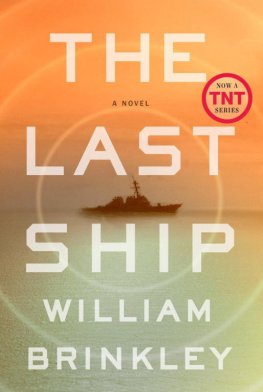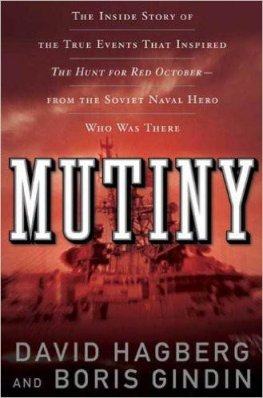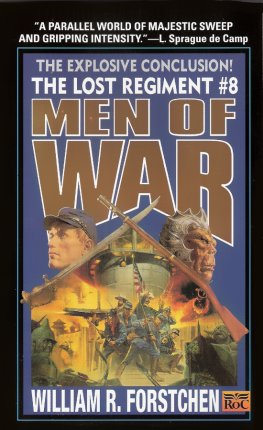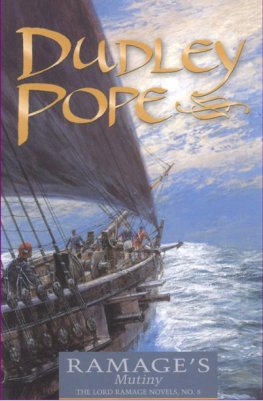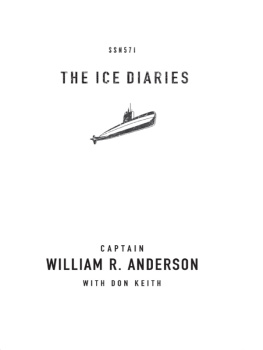William Brinkley
THE LAST SHIP
A FRIEND MAY WELL BE RECKONED THE MASTERPIECE OF NATURE.
EMERSON

PROLOGUE
The Sword of the Fleet
In bravura beauty, no ship has ever come off a Navy ways to be compared with the destroyer and she was a fine example of a noble breed. Rakish and swift in the seas: 466 feet overall, beam of fifty-nine feet, draft of twenty-seven, of 8,200 tons displacement with full load, rated speed of 38 knots, nothing existing in any navy of the world that could overtake her on long waters. But most of all her worth was measured in what could not be seen, by what she carried in magazines deep within: She came armed with Tomahawk. She was named the Nathan James after a young ensign who had received the Navy Cross for valor in the Second Battle of the Philippine Sea in World War II.
A word about Tomahawk. It was fundamentally different from the big fat intercontinental ballistic missile. Powered by a small air-breathing engine rather than by huge rockets that lifted ICBMs above the atmosphere, Tomahawk cruised aerodynamically: a pilotless torpedo-shaped airplane, ingeniously preprogrammed to do all its own work, and of wondrous virtuosity; altogether, perhaps the smartest weapon yet contrived by the heartfelt genius of man. All we did was launch it. A fire and forget weapon, it totally guided itself from the moment it left the ship until the moment it found target. Initially it climbed and cruised at around 10,000 feet to conserve its fuel. As it made landfall, it activated its TERCOM (terrain contour matching) attribute, comparing the ground over which it flew with a map stored in its computerized brain, periodically correcting course. Because it was so small and flew so low, hugging the earth, often at treetop level, its own radar return one one-thousandth that of a B-52 bomber, equipped now also with both stealth technology and ECM (electronic countermeasures) to confuse or jam enemy radars, it was virtually impossible to detect, track or intercept. And finally its accuracy defied imagination, an order of magnitude more so than ballistic trajectories. Having flown a couple thousand miles or more, from a ship standing far at sea, it could have guided itself through a selected window in the Kremlin.
Its history had been a curiously sly one. It was with the Tomahawk cruise missile, sometimes it seemed with scarcely anyone noticing the fact, that matters began to get beyond all hope of control. It was almost as if it grew and flourished while people were looking the other way, attention focused on the more glamorous showcase ICBM, due to its enormous size, its silo fixed-residence, and its far smaller, treaty-restricted numbers quite easily verifiable; while all the time, in the back shop, these little things, free of any limitations whatever, were being turned out like sausages, by the thousands. Length twenty-one feet, diameter one foot nine inches, weight 3,200 pounds, wing span eight feet; by comparison with the ICBM, dirt cheap to manufacture ($1.5 million per missile). Until then a crucial premise had been that each side could employ satellites to count nuclear weapons the other deployed. But here now was a device entirely beyond any such reins. One woke up one morning and realized that a weapon had come into being and was proliferating wildly which was literally immune to restraint. By now cozily in place inside hundreds of movable ships, it had become impossible to count, much less to verify, by any system, any more than you could verify the number of chaff launchers, torpedoes, five-inch roundsor, for that matter, loaves of breadin the fleet; no way even to determine which Tomahawks were conventionally armed, as many were, which enclosed nuclear warheads, or which of the two a particular ship was carrying: Nothing told them apart. Countinghence controlwas now forever out of reach.
The astonishing thing was how little appreciation existed for what all this meant; for what Tomahawk could do. As if it had not penetrated human understanding that each of them could transport a 200-kiloton nuclear warhead and that ships carried them by the score; the circumstance scarcely realized that Tomahawk embodied a revolution not just in seapower but in warfare itself, to the extent one could fairly state that it made little difference any longer what happened to land weapons, whether they were banned or not. It is a hard thing to say but the fact was this: All of the talk concerning the restriction or elimination of land-based missiles constituted a historic charade, terrible in its meaning, its illusion. If the last one of these had been removed by such negotiations, nothing would have changed. It was almost as though people were being lulled into forgetting that there existed something called the sea: and that there are many seas, indeed that they occupy seven-tenths of the planet, and that there is no spot of land on it that cannot be reached by an object launched from some sea by a ship. People either did not know or could not grasp the fact that a single ship, such as ours, could fairly well exterminate a continent. And there were many ships.
The Navys consciousness of these matters had certainly penetrated, doctrinal writings soon quite accurately enshrining Tomahawk as the sword of the fleet. We were fitted with two sixty-one-cell Mk 41 VLSs (Vertical Launch Systems) each including at the time of these events twenty-eight TLAM-N (Tomahawk Land Attack Missile-Nuclear) missiles for a total of fifty-six; each of these incarnating the 200-kiloton warhead for an aggregate of 11,200 kilotons. Employing the fission bomb dropped on the city of Hiroshimayield 12 kilotonsas a benchmark to determine our strike capability, the Nathan James constituted an 896-H ship. Put another way, we could inflict that number of Hiroshimas. Perhaps no one could be expected, in the sense of truly received knowledge, to comprehend this fact. The human mind seems curiously designed to contain the ability to invent such weaponry while in any effective manner lacking that to take in the reality of the force thus created. I, the captain of this ship, scarcely comprehended it myself.
I have often felt that the captain of a Navy ship is the last absolute monarch left on earth, as close to possessing the divine rights of kings as remains. A man-of-war is an autocracy to a degree scarcely explicable to those who dwell out their lives confined within the littorals of the world. Little has changed in this respect since John Paul Jones, under date of 14 September 1775, wrote the Naval Committee of Congress:
A navy is essentially and necessarily aristocratic. True as may be the political principles for which we are now contending they can never be practically applied or even admitted on board ship, out of port, or off soundings. This may seem a hardship, but it is nevertheless the simplest of truths. Whilst the ships sent forth by the Congress may and must fight for the principles of human rights and republican freedom, the ships themselves must be ruled and commanded at sea under a system of absolute despotism.
A letter, indeed, reasserted in all editions of Naval Leadership, the present-day bible in the education and making of officers of the United States Navy. On a vessel carrying nuclear missiles these elements of prepotency and authority reach levels suggestive of the limitless. No Caesar, no Alexander or Napoleon, ever had a fraction of the power of a single such ships commander. The power to launch missiles on their own initiative was given solely to ships captains, both of surface vessels and of submarines, who were freed of the elaborate system of safeguardsincluding electronic locks and fail-safe Go-Codes from the Presidentthat presided over the launching of land-based missiles. The fail-deadly firing mechanism for ships operated in precisely the opposite manner; this remarkable autonomy considered necessary to insure retaliation after an enemy first strike in the event messages could not get through from National Command Authorities.

